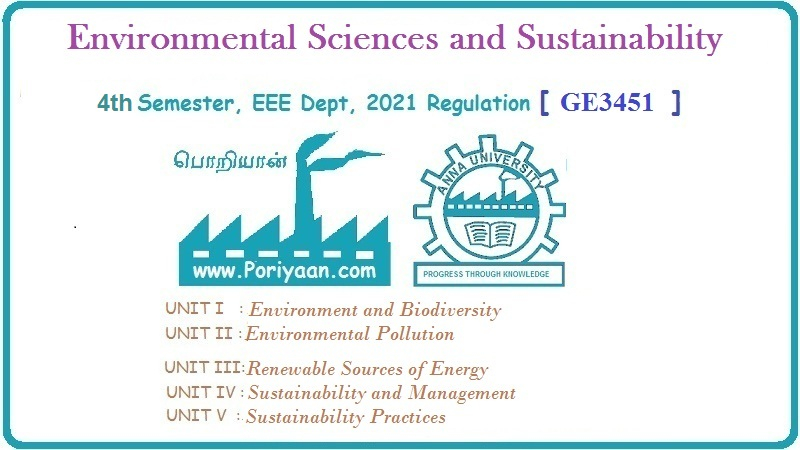Environmental Sciences and Sustainability: Unit III: Renewable Sources of Energy
Hydrogen Energy
Advantages, Disadvantages
• Hence the need of energy should be fulfilled by alternate sources. These are also called renewable or non-polluting energy sources.
Hydrogen Energy
•
Hydrogen fuel cells produce electricity by combining hydrogen and oxygen atoms.
The hydrogen reacts with oxygen across an electrochemical cell similar to that
of a battery to produce electricity, water and small amounts of heat.
•
Hydrogen is an energy carrier that can be used to store, move and deliver
energy produced from other sources.
•
Hydrogen is a clean fuel that, when consumed in a fuel cell, produces only
water.
•
Hydrogen can be produced from a variety of domestic resources, such as natural
gas, nuclear power, biomass and renewable power like solar and wind.
•
These qualities make it an attractive fuel option for transportation and
electricity generation applications. It can be used in cars, in houses, for
portable power and in many more applications.
1. Advantages of Hydrogen Energy
1.
Hydrogen is renewable
•
Hydrogen is a renewable energy source which means we cannot run out of it, at
least not on a human timescale. It’s a rich source of energy which is all
around us.
2.
Hydrogen is a clean energy source
•
When we burn hydrogen no harmful by-products are released into the atmosphere.
In fact, once hydrogen has been used as an energy source, it can be converted
to drinking water for astronauts.
3.
Hydrogen energy is not toxic
•
Hydrogen does not cause damage to human health unlike nuclear energy or natural
gas.
4.
Hydrogen energy is highly efficient
•
Hydrogen is incredibly dense in energy and is able to provide a lot of power.
It is 3 times more powerful than most fossil based fuel sources so less
hydrogen is required to perform the same tasks. This is why hydrogen is used in
space exploration to fuel spaceships, aeroplanes, boats, cars and fuel cells.
2. Disadvantages of Hydrogen Energy
1.
Hydrogen is volatile
•
Because of its high energy content, hydrogen gas is a highly flammable and
volatile substance which makes it a risky fuel to work with.
2.
Hydrogen energy is expensive to produce
•
Both steam-methane reforming and electrolysis are expensive processes which
prevents a lot of countries from committing to mass production. Research and
trials are in process to try and discover a cheap and sustainable way to
produce enough hydrogen without contributing more carbon into the atmosphere.
3.
Hydrogen energy is difficult to store
•
Hydrogen is a much lighter gas than gasoline which makes it difficult to store
and transport. To be able to store it we need to compress it into a liquid and
store it at a low temperature. The high amounts of pressure needed to store
hydrogen makes it a difficult fuel to transport in large quantities.
4.
Hydrogen can be dangerous
•
Hydrogen is incredibly flammable which makes it a dangerous fuel if not handled
correctly. There is also no smell to hydrogen so sensors are required to detect
leaks.
Environmental Sciences and Sustainability: Unit III: Renewable Sources of Energy : Tag: : Advantages, Disadvantages - Hydrogen Energy
Related Topics
Related Subjects
Environmental Sciences and Sustainability
GE3451 ESS 4th Semester | 2021 Regulation | 4th Semester EEE Dept 2021 Regulation
